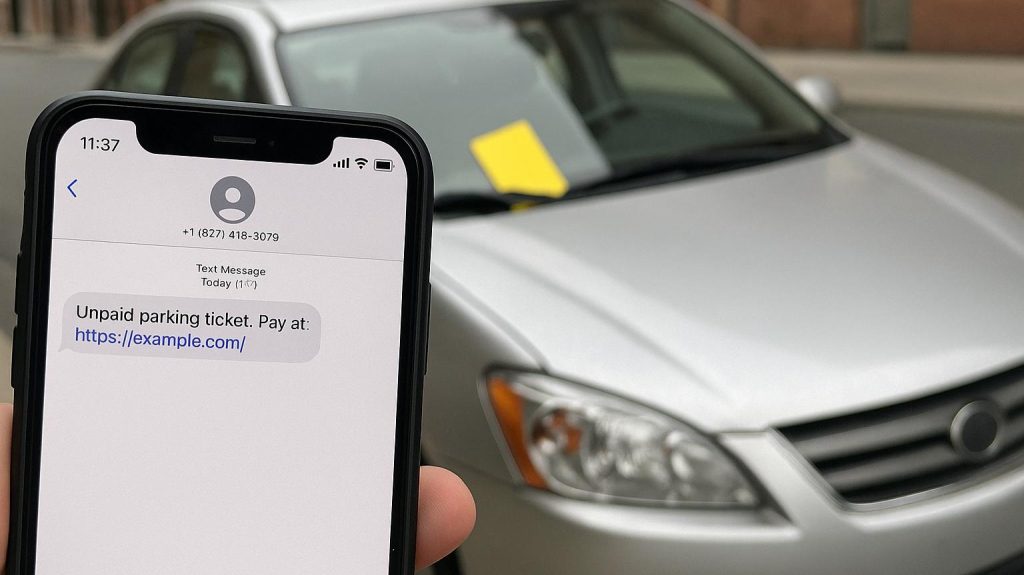London residents are being targeted by a new text message scam that’s trying to trick people into paying fake parking tickets online, according to the City of London.
The city issued a warning after receiving multiple reports of fraudulent text messages asking residents to pay parking tickets through suspicious links. Officials are urging anyone who receives these messages to delete them immediately and avoid clicking on any links.
According to the City of London, these scam texts are designed to look legitimate but are actually attempts to steal personal and financial information from unsuspecting residents. The fraudulent messages typically include a link that directs users to a fake payment portal.
The city has made it clear that they do not send emails or text messages requesting parking ticket payments. This means any text or email claiming to be from the City of London about outstanding parking fines should be treated as suspicious.
These types of phishing scams have become increasingly common across Canada, with scammers using official-looking messages to trick people into providing sensitive information like credit card numbers, banking details, or personal identification.
Residents who have received these fraudulent texts are advised to delete them immediately without clicking on any links or responding to the message. Clicking on suspicious links can potentially install malware on your device or direct you to fake websites designed to steal your information.
For legitimate parking ticket payments, residents should visit the official City of London website or pay in person at authorized locations. The city’s official payment methods do not involve unsolicited text messages or emails with payment links.
If you believe you may have fallen victim to this scam by clicking on a link or providing personal information, it’s recommended to contact your bank or credit card company immediately to report the potential fraud. You should also consider changing any passwords that may have been compromised.
This parking ticket scam is just one of many fraudulent schemes targeting Canadians through text messages and emails. Similar scams often impersonate government agencies, utility companies, or other official organizations to appear more credible.
The City of London encourages residents to remain vigilant and report any suspicious messages they receive. When in doubt about the legitimacy of any communication claiming to be from the city, residents can contact the city directly through official channels to verify.
To protect yourself from similar scams, experts recommend being cautious of any unsolicited messages requesting immediate payment, especially those that create a sense of urgency or threaten penalties for non-compliance.
Residents should also be aware that legitimate government communications typically provide multiple ways to verify their authenticity and don’t rely solely on text messages for important notices like parking violations.
The city’s warning serves as a reminder for all London residents to stay alert for fraudulent communications and to verify the authenticity of any unexpected payment requests before taking action.

